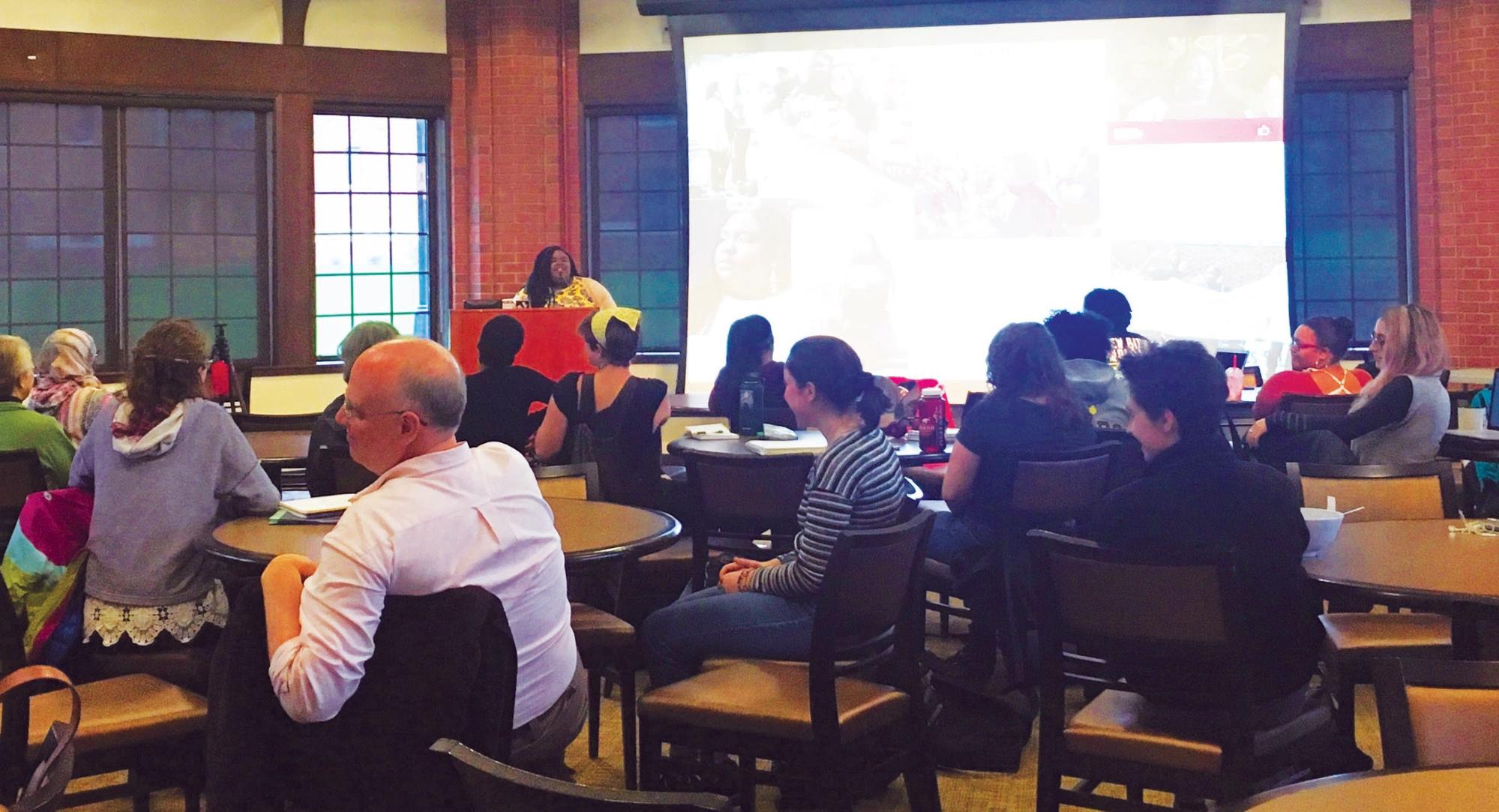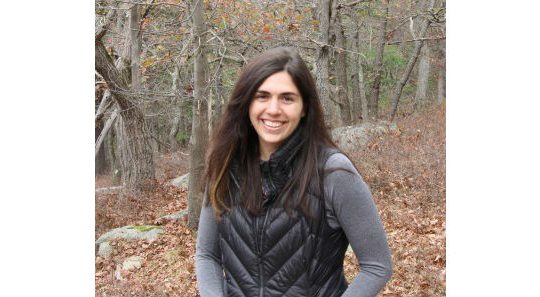
Zyahna Bryant is the 17-year-old activist responsible for the removal of a Robert E. Lee statue in her hometown of Charlottesville, Virginia. Bryant captivated her audience while speaking on the University of Puget Sound campus in an event titled: “To be Seventeen, Gifted, and Black: Narratives of Rupture from the U.S. South in 2018.”
In the Puget Sound Rotunda, excited students, faculty and community members gathered to hear Bryant talk. This was the first official Student Association for the Race and Pedagogy Institute (SARPI) event and was spearheaded by sophomore Jade Herbert.
Herbert acted as Bryant’s host during the Race and Pedagogy National Conference and was excited to organize a space where Bryant could share her story.
To start the event, Bryant took the microphone and brought the audience back to June 15, 2013.
“This was the day after the Trayvon Martin verdict and it had come out that George Zimmerman would be found not guilty on all counts. … We made these signs that said ‘honk for justice for Trayvon’ or ‘I am Trayvon Martin’ and we put them in my grandma’s front yard,” Bryant said.
Bryant was 12 at the time. After her neighbors’ suggestion to have a protest, Bryant began planning one and made the announcement at a local festival.
“At the park there was a festival going on and I went up to the DJ and I was like, ‘Can I just get the mic for a second,’ and was like, ‘Hey y’all, meet me at the Federal Courthouse building tonight at 7 p.m. and bring your signs, put, “Justice for Trayvon,” and just meet me there,’” Bryant said.
She expected for her family and friends to come, but was surprised by the amount of people she didn’t know who came to the event.
Bryant shared her story surrounding June 15, 2013 to show the audience the start of her activism.
As a young activist, she acknowledged her potential to inspire others and focused on the need for people to just do something. Bryant’s 2013 protest led her to make monumental changes in her community just three years later.
“This is now the spring of my freshman year and I had just written the petition, which was first a letter to the editor, calling for the removal of the Lee statue and the renaming of Lee Park in Charlottesville,” Bryant said as she pointed to a photo of herself at the press conference.
She made note of the picture which showed a divided park in which her family, friends and supporters were on one side while around 50 confederate flaggers were on the other.
“I got up to the mic and I remember saying, ‘These statues have to go because people of color also have to pay taxes to maintain these spaces,’ and that was the most tangible argument I felt in that moment, but I was really thinking, ‘No, these statues have to go because they are racist.’ … At the time I didn’t know the word trauma, but I knew that it made me feel uncomfortable and the things that I have to think about when I pass that statue. That would end up being something that I know as trauma and racial trauma specifically,” Bryant said.
Bryant’s activism caused the Charlottesville City Council to vote to remove the statue after her online petition garnered hundreds of signatures. It also led to a ripple effect as other cities removed their confederate statues and symbols.
“Writing that petition was crazy because at first I thought it was going to be like everything else I had done. I thought it was going to be kind of small-scale and that a few people would pay attention and that would be great. … Honestly, writing that petition changed my life,” Bryant said.
Bryant was an inspiration to many of the people who came to listen to her talk. She finished her speech by talking about her role now as both a senior in high school and a member of the Charlottesville school board, and about her current activism. She then opened up the floor to questions by the audience members.
“I found the event to be incredibly powerful. I was really overwhelmed by how wise she was beyond her years and how young she was. Despite all the personal problems we have in our lives, she was able to do more than I have ever been able to do, and I am older than her,” audience member and senior Allison Shapiro said.
Herbert, who worked to create this event, was inspired, much like Shapiro.
“To put herself on the forefront especially, it shows as a woman of color that women of color always put themselves at the front. … And to know that women of color are the most unrespected kind of women in America … is really heartbreaking,” Herbert said.
Herbert also spoke of the challenges that have come with Bryant’s activism as she has received threats to her and her family’s safety. Dr. LaToya Brackett, professor of African American Studies at the University of Puget Sound, also echoed this. Brackett pointed to Bryant’s mother, Zeneida Howard, as a lively and supportive presence at the event and in Bryant’s work.
“The reality is her life is pretty devastating at times, but she has to keep going and an event like this allows her to feel the good of what she does,” Brackett said.
This was Bryant’s first individual talk. Brackett also shared that after this event, a university in Virginia asked if Bryant would speak on their campus about her experience as a young activist.
As Brackett spoke about Bryant she received a notification from Bryant’s twitter account. It was the day after Bryant had arrived back home and already she was back at work. Brackett emphasized that as Bryant continues, she will only continue to grow from here.



